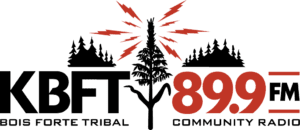Mohegan Chief Lynn Malerba stepped down from her role as U.S. Treasurer on Friday, November 15, 2024. NAFOA extends our gratitude for her dedicated service, leadership, and steadfast partnership. She is seen here speaking at the 2024 Fall Finance and Tribal Economies Conference. Photo courtesy NAFOA
Don’t forget to join the tribal consultations for the Tribal general welfare benefit rule. Sessions are taking place on November 18, November 19 and November 20.
The Tribal General Welfare Exclusion Act of 2014 became law in September 2014, creating Internal Revenue Code (IRC) Section 139E. There are proposed regulations that would clarify its requirement for benefits that an Indian Tribal government program provides to qualify as a Tribal general welfare benefit eligible for exclusion from gross income of the Tribal member.
The proposed regulations were published in the Federal Register on September 17, 2024, and provide that the gross income (i.e. taxable income) of benefits received by a Tribal program participant doesn’t include the value of any Tribal general welfare benefit provided by an Indian Tribal government program.
The proposed regulations define terms in IRC Section 139E, provide examples, and set requirements for a program and a benefit to qualify as a Tribal general welfare benefit.
Source: Moss Adams
Continue Reading
Regular Deadline: December 9, 2024 at 11:59 p.m. Hawaiian Time
There’s still time to apply for the 2025 Leading People and Investing to Build Sustainable Communities (LPIBSC) program! Developed in collaboration with Harvard Business School Executive Education, NAFOA, and AFOA Canada, LPIBSC equips Native finance professionals and tribal leaders with essential strategies to create high-performing, innovative communities.
Regular admission fees have increased to $3,500. The program fee covers tuition, books, case materials, accommodations, and most meals. Payment is due upon admission into the program.
By LaDonna Sinning, CPA, CFE, Partner, Arledge CPAs
Single audits are considered an essential component of financial oversight for Native American tribes receiving federal funding. These audits assess compliance with federal regulations and evaluate the effectiveness of internal controls. When issues arise during these audits, they are noted as “findings,” which can impact the tribe’s ability to secure future funding and manage current projects effectively. Internal audits play a crucial role in preventing and addressing or clearing findings. This article explores the benefits of internal audits in maintaining grant compliance, resolving single audit findings and enhancing overall financial management within Native American tribes.
Single audit findings are issues identified during the audit of a tribe’s financial statements and compliance with federal regulations. These findings can be related to non-compliance or deviations from grant requirements or internal control weaknesses that could result in non-compliance. Addressing these findings is crucial for maintaining compliance and ensuring the effective use of federal funds. Internal audits provide a systematic approach to resolving these issues and improving financial management practices.
Continue Reading in the NAFOA Navigator (pg 146-147)
Program for Tribes
Deadline: December 16, 2024
The purpose of the Landscape Scale Restoration competitive grant program is to encourage collaborative, science-based restoration of priority rural forest landscapes. This program supports high impact projects that lead to measurable outcomes on the landscape, leverage public and private resources, and further priorities identified in science-based restoration strategies.
This funding opportunity is for Federally recognized Tribes, Alaska Native Corporations/Villages, and Tribal organizations as defined in 25 USC 5304,
Source: Grants.gov
Learn More
The Tunica Biloxi Industries, LLC (TBI) is a wholly owned economic instrumentality of the Tunica-Biloxi Tribe of Louisiana.
Headquartered in Marksville, Louisiana, on the Tunica Biloxi Reservation, TBI serves as a holding company with multiple operating subsidiaries engaged in multi lines of business for the federal government and commercial enterprises. Tunica Biloxi Services, LLC, a subsidiary of TBI, is a certified American Indian Tribe (AIT) owned 8(a) company, as well as having Hub Zone status. As an American Indian Tribe owned, small, disadvantaged business, we have the resources to provide innovative and flexible solutions to meet government and commercial objectives.
The President of TBS is responsible for implementing the policies and instructions of the Tunica Biloxi Economic Development Authority (TBEDA’s) Board of Directors and the CEO. The President will be responsible for administering the activities of subsidiaries by planning, organizing, directing, monitoring, and inspecting, coordinating, and reporting on their work.


